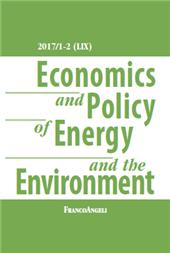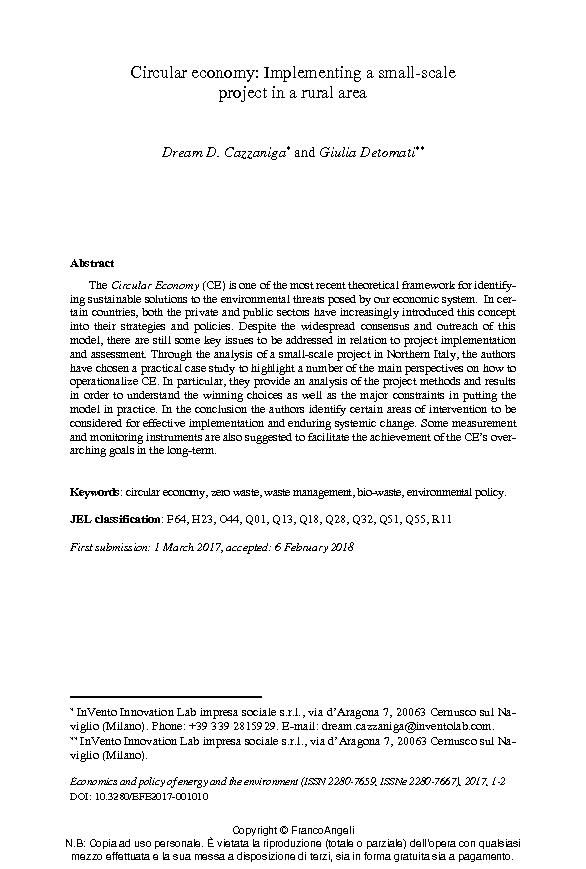Circular economy : implementing a small-scale project in a rural area
191-217 p.
The Circular Economy (CE) is one of the most recent theoretical framework for identi-fying sustainable solutions to the environmental threats posed by our economic system. In certain countries, both the private and public sectors have increasingly introduced this concept into their strategies and policies. Despite the widespread consensus and outreach of this model, there are still some key issues to be addressed in relation to project implementation and assessment. Through the analysis of a small-scale project in Northern Italy, the authors have chosen a practical case study to highlight a number of the main perspectives on how to operationalize CE. In particular, they provide an analysis of the project methods and results in order to understand the winning choices as well as the major constraints in putting the model in practice. In the conclusion the authors identify certain areas of intervention to be considered for effective implementation and enduring systemic change.
Some measurement and monitoring instruments are also suggested to facilitate the achievement of the CE's overarching goals in the long-term. [Publishers' text].
Fait partie de
Economics and Policy of Energy and Environment : 1/2, 2017-
Articles du même numéro (disponibles individuellement)
-
Informations
Code DOI : 10.3280/EFE2017-001010
ISSN: 2280-7667
KEYWORDS
- Circular economy, zero waste, waste management, bio-waste, environmental policy



